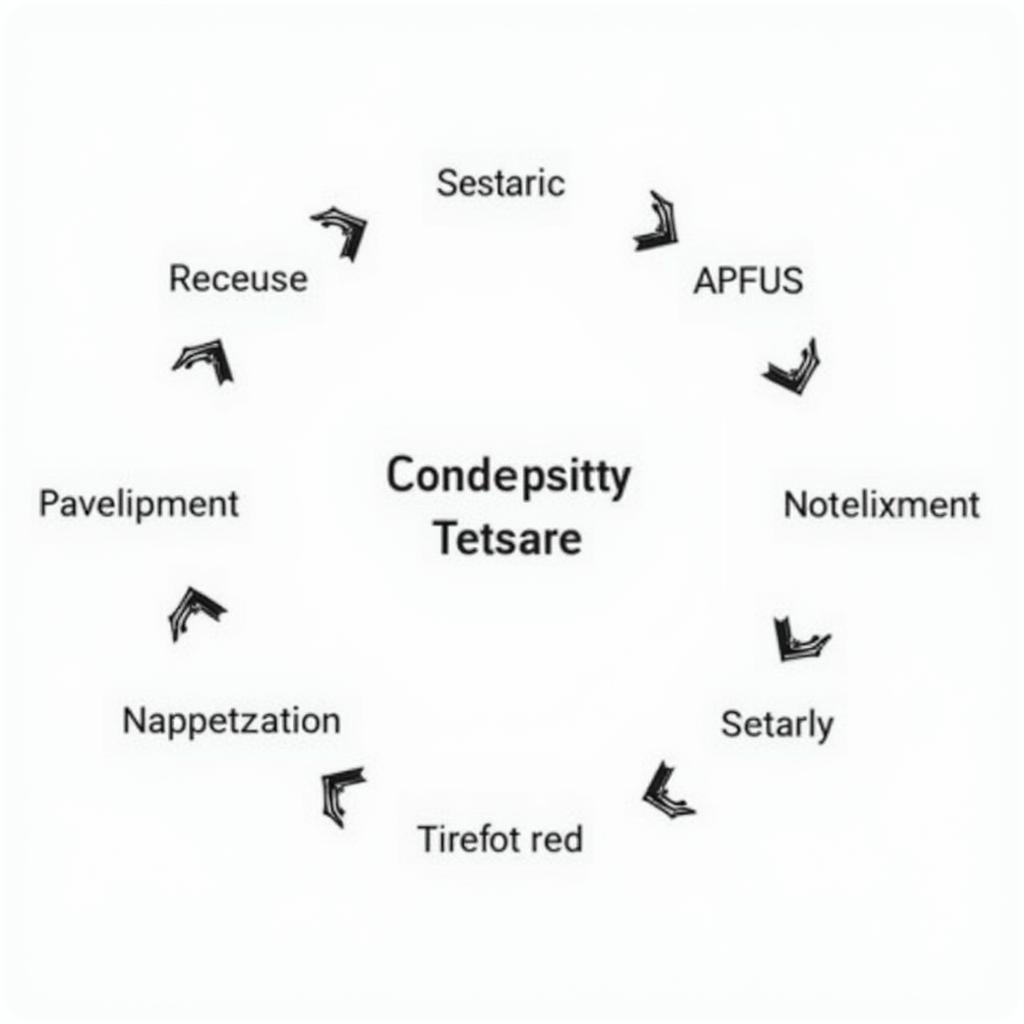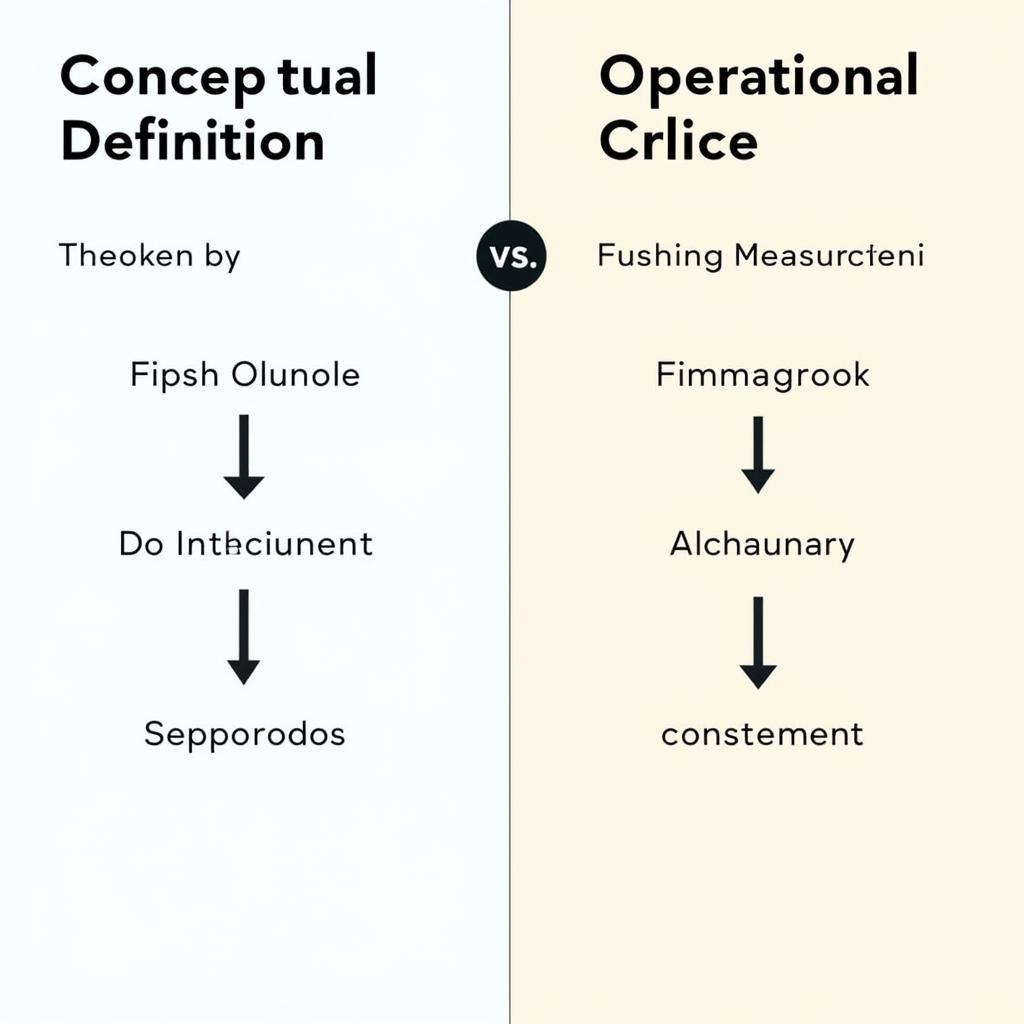A Conceptual Definition In Research acts as a compass, guiding your study towards a deeper understanding of the core concepts under investigation. It goes beyond a simple dictionary definition, delving into the specific meaning and application of a concept within the context of your research.
Why is a Conceptual Definition Crucial?
Imagine embarking on a paranormal investigation without a clear understanding of “hauntings.” Are you seeking cold spots, EVPs, or full-bodied apparitions? Each manifestation represents a different aspect of the phenomenon, demanding a specific approach. Similarly, in research, a conceptual definition clarifies what you mean by a particular concept, ensuring everyone is on the same page.
 Conceptual Framework in Research
Conceptual Framework in Research
Constructing a Solid Conceptual Definition
Developing a robust conceptual definition involves a multi-faceted approach:
- Start with Existing Literature: Explore existing research, theories, and definitions related to your concept. This provides a foundational understanding and reveals different perspectives.
- Identify Key Attributes: Dissect the concept into its fundamental characteristics. For instance, “fear” might involve physiological responses, subjective experiences, and behavioral changes.
- Define the Scope: Specify what your concept includes and excludes. This sets boundaries and prevents ambiguity. For example, are you focusing on “acute fear” or “chronic anxiety”?
- Contextualize: Tailor the definition to your specific research question and objectives. A study on “paranormal beliefs” might focus on the influence of cultural background, while another might examine the psychological factors involved.
- Use Clear and Concise Language: Avoid jargon and technical terms that might confuse your audience. Opt for precise and accessible language to ensure clarity.
Conceptual Definition vs. Operational Definition: What’s the Difference?
While a conceptual definition clarifies the meaning of a concept, an operational definition outlines how you will measure it in your research. Think of it as translating an abstract idea into concrete, measurable variables.
For instance, in a study on the effectiveness of a new ghost-hunting device:
- Conceptual Definition: “Effectiveness” might be defined as the device’s ability to accurately detect and record paranormal activity.
- Operational Definition: “Effectiveness” might be measured by the number of verified EVP recordings, temperature fluctuations, or electromagnetic field disturbances captured by the device during a controlled investigation.
 Conceptual Definition vs. Operational Definition
Conceptual Definition vs. Operational Definition
The Impact of a Well-Defined Concept
A clear conceptual definition is not merely a semantic exercise; it forms the bedrock of your entire research process.
- Enhanced Research Focus: It provides a clear lens through which to view your data, ensuring relevance and preventing scope creep.
- Improved Communication: It establishes a common language among researchers, facilitating understanding and collaboration.
- Increased Validity: It strengthens the connection between your chosen methods and the concept you are studying, leading to more accurate conclusions.
Conceptual Definition Example in Research
Let’s consider a study on the conceptual definition example in research of “telepathy.” A researcher might define it as “the purported transmission of thoughts or feelings from one person to another without the use of known sensory channels.” This definition:
- Draws from existing literature: It acknowledges the concept of “sensory channels” and their absence in telepathic communication.
- Identifies key attributes: It highlights the transmission of “thoughts or feelings.”
- Defines the scope: It specifies that the transmission occurs “without the use of known sensory channels.”
- Contextualizes: It implicitly acknowledges the debate surrounding the existence of telepathy by using the term “purported.”
Mastering Conceptual Clarity
Developing a comprehensive conceptual definition is an iterative process. As you delve deeper into your research, you might refine or adapt your initial definition based on new insights and findings. Remember, a well-defined concept is not a constraint but a guiding light, illuminating the path to meaningful research outcomes.
FAQs About Conceptual Definitions in Research
1. What if there are multiple definitions of a concept in the literature?
Answer: It’s common to find varying definitions. Analyze their strengths and weaknesses, choose the one most relevant to your study, and justify your selection.
2. Can a conceptual definition change during the research process?
Answer: While it’s ideal to establish a clear definition upfront, refinements are acceptable if justified by new understandings gained during the research.
3. How detailed should a conceptual definition be?
Answer: Strive for clarity and conciseness. The level of detail depends on the complexity of the concept and its importance within your research.
4. What is the role of theoretical frameworks in shaping conceptual definitions?
Answer: Theoretical frameworks provide a lens through which to view your concepts. They can inform and shape your definitions, ensuring alignment with established theories.
5. What are some common pitfalls to avoid when defining a concept?
Answer: Avoid circular definitions, overly broad or narrow scopes, and ambiguity. Use clear, concise language and provide concrete examples.
Need Help With Your Paranormal Research?
Navigating the world of research can be daunting. If you’re struggling with conceptual definitions or any aspect of your study, don’t hesitate to reach out. Our team of experienced Paranormal Researchers is here to provide guidance and support.
Contact Us:
Phone: 0904826292
Email: research@gmail.com
Address: No. 31, Alley 142/7, P. Phú Viên, Bồ Đề, Long Biên, Hà Nội, Việt Nam
Our team is available 24/7 to answer your questions and provide expert assistance. Let us help you unlock the mysteries of your research!